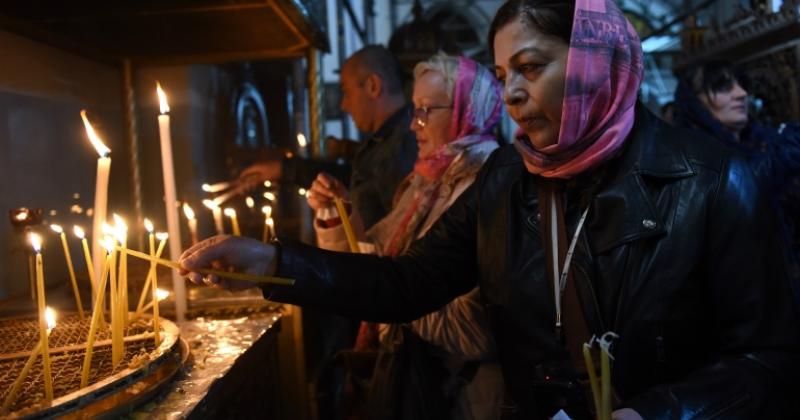It clearly was neither coordinated nor intentional, but this Easter Sunday saw an unusually low governmental and public interaction with Palestinian Christians. It might have been the fact that Easter falls on two different Sundays depending on which calendar one is looking at. While Catholics and Protestants around the world celebrated Easter on April 1, the same day was Palm Sunday for those celebrating Easter according to the Eastern calendar. Orthodox and Coptic Christians celebrate Easter on April 8.
Easter, which is decided based on lunar calculations, always falls on a Sunday but on different dates every year, except during Leap years when it falls on the same day for both those who celebrate it based on the Gregorian (Western) calendar and those who follow the Julian (Eastern calendar).
The same differences also appear during Christmas, where the Western calendar celebrates it on December 25, while those following the Eastern one remember the birth of Christ on January 7.
Most Arab Christians in Palestine, Jordan, and other countries have tried to end this confusion by agreeing on a single date for both holidays. Publicly, most Arab Christians celebrate Christmas based on the Catholic and Protestant date of December 25, while Catholics and Protestants remember the resurrection of Jesus on the dates set by the Orthodox and Coptic churches. But the confusion in Palestine takes place in Jerusalem and Bethlehem, where the 1852 status quo still exists, and the attempt to unify the holidays is not observed.
Palestinian Prime Minister Rami Hamdallah forgot to announce during the Cabinet meeting on Tuesday, April 3 that Easter has been declared a national holiday in years past, nor did he remember to send the usual congratulatory statement. Two Cabinet members, Minister of Finance Shukri Bishara and Minister of Tourism Rula Mayyaa, who are Christians, failed to remind him to say something. The following day, the Ramallah Council of Churches issued an angry statement against the prime minister for ignoring an important Christian holiday. On Easter, many sermons included a few negative words, and in Bethlehem, some priests suggested not to invite Hamdallah to the annual tree lighting ceremony on Christmas eve.
Palestinian President Mahmoud Abbas tried to rectify the situation by meeting with Church leaders on the eve of Easter and congratulated the Christian community on Holy Fire Saturday, in which the light comes out of the Church of the Holy Sepulchre and is passed around to the four corners of the world. Abbas said that he and Yasser Arafat had previously instructed their governments to declare Easter a national holiday, and promised that this mistake will be addressed permanently. Hamdallah, for his part, visited the Melkite Church in Nablus on Easter.
But late attempts, notwithstanding the incident, left a bitter taste to the dwindling Arab Christian community. Hanna Issa, secretary general of the Islamic-Christian Commission for Support of Jerusalem and Holy Sites, issued a statement saying that Palestinian Christians around the world constitute 20 per cent of the overall Palestinian population. His statement attempted to counter the whispered comments that Christians in Palestine are less than 2 per cent today. Another explanation points to the fact that while the Islamic faith recognises the birth of Jesus by a virgin, and a special Surah is named after the Virgin Mary, the issue of the crucifixion and resurrection of Jesus is a source of religious differences.
Arab Christians are an integral part of the Arab world and have had major contributions to politics, culture, education and art. While they have diminished in size due to political instability and the opportunities they had to emigrate, they play a major role in business, politics and community life in both Palestine. To address an incident like the one witnessed this Easter, some point to the need of a structural change. One way could be renewing efforts that push for moving towards a civil state that treats all of its citizens equally, regardless of gender, race or religion as the best way forward to respect all communities and faiths.
